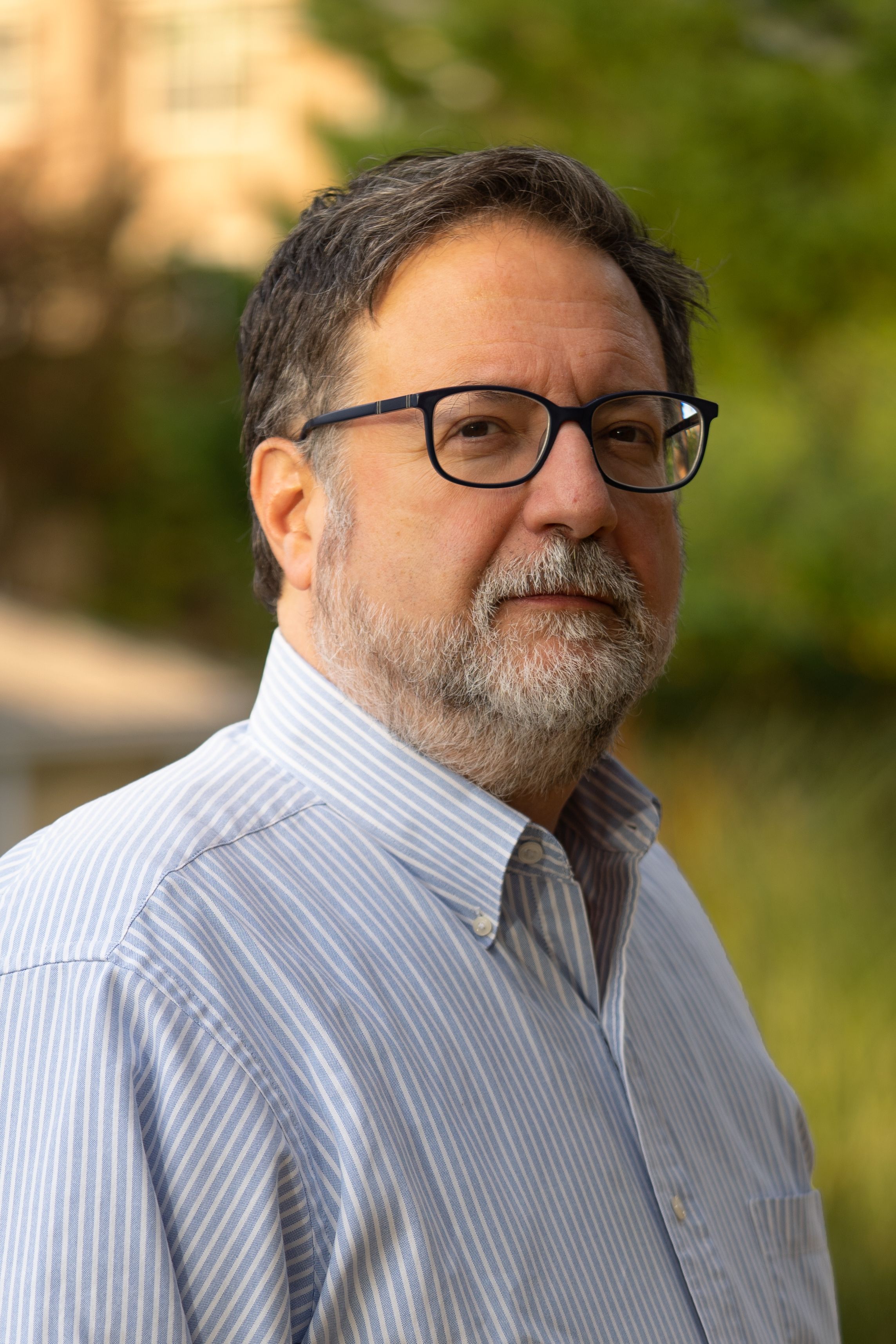CORE FACULTY

Nathan Cheek, Ph.D. Assistant Professor
Nathan Cheek is an Assistant Professor of Psychology at the University of Maryland. He received his Ph.D. in Psychology and Social Policy from Princeton University in 2021.
Dr. Cheek directs the Choice, Inequality, and Policy (CHIP) Lab and collaborates with lab members to investigate a variety of topics at the intersection of social cognition and judgment and decision making. Dr. Cheek is particularly interested in understanding how biased beliefs drive the neglect and mistreatment of those already facing marginalization and other disadvantages (e.g., people in poverty).Dr. Cheek also studies how people make sense of their choices, including how context, from the immediate choice environment to broader cultural norms and values, shapes how people interpret the meaning of their choices, the goals people adopt during choice, and people’s subjective experiences during and after choice.Fitting with the interdisciplinarity of the SDOS area, Dr. Cheek’s lab draws on perspectives from social psychology, decision science, and organizational behavior research, as well as from allied fields like sociology and consumer research.
Dr. Cheek received the SAGE Emerging Scholar Award from the Society for Personality and Social Psychology and the Innovations in Existential Psychology Research Award from the International Society for the Science of Existential Psychology, and his research has been supported by organizations including the National Science Foundation, the Overdeck Family Foundation, and Meta. More information can be found at: www.natecheek.com

James Grand, Ph.D. Associate Professor
James Grand is an Associate Professor of Psychology at the University of Maryland. He received his Ph.D. in Organizational Psychology from Michigan State University.
Dr. Grand's main research focuses on the interplay of knowledge-building, decision-making, collaboration, and performance at the individual and team levels. A significant theme of his research lies in exploring and understanding these mechanisms and outcomes as emergent processes, which involves computationally and experimentally investigating the affect, behaviors, and cognitions of individuals over time that create, change, and/or maintain dynamics at different levels of analysis (i.e., individuals, teams, multi-team systems, organizations, etc.). More specific topics in his research stream focus on processes related to A) how planning/project teams gather and share information, develop collective knowledge, and make decisions based on their shared understanding, and B) how action-oriented teams (i.e., medical teams, military teams, sports teams, etc.) coordinate, regulate, and adapt their behavioral and cognitive resources/efforts to produce team performance outcomes. He also conducts research examining the role of information processing on personnel training and testing/assessment outcomes and has methodological interests in computational modeling and simulation of dynamic processes and Bayesian statistics. His work in these areas has been published in outlets such as the Journal of Applied Psychology, Organizational Behavior and Human Decision Processes, and Organizational Research Methods. In addition, Dr. Grand maintains active multi-disciplinary partnerships with researchers and practitioners in the field of emergency medicine examining issues related to teamwork, leadership, and adaptability among provider teams. This work has been published in a variety of highly ranked outlets including Critical Care Medicine, BMJ Quality & Safety, and Academic Emergency Medicine.
Dr. Grand currently serves on the editorial boards for the Journal of Applied Psychology and the Journal of Business and Psychology, and is past chair of the Scientific Affairs Committee for the Society of Industrial Organizational Psychology. Dr. Grand received the William A. Owens award from the Society of Industrial Organizational Psychology, an Emerald Group Publishing Citation of Excellence award, and the SAGE Best Paper Award for his 2013 publication on advancing multilevel research through the use of computational modeling and his 2016 paper on team knowledge emergence received a Monograph designation from the Journal of Applied Psychology. He has received funding for current and previous research from the U.S. Army Research Institute for the Behavioral and Social Sciences and the Defense Medical Research and Development Program.

Paul Hanges, Ph.D. Professor
Paul Hanges is a Professor of Industrial/Organizational Psychology of the Department of Psychology at the University of Maryland. He is also an affiliate of the University of Maryland's R. H. Smith School of Business.
His research centers on three themes: a) human resource practices, organizational diversity and organizational climate, b) leadership, followership, and cross-cultural issues, and c) dynamical modeling, complexity theory, and research methodology. He published two co-authored books: "Strategic Leadership: The GLOBE Study of CEO Leadership Behavior and Effectiveness across Cultures" (2014) and "Leadership, Culture, and Organizations: The GLOBE study of 62 societies" (2004). He has written over 100 articles, book chapters, technical reports and has conducted more than 40 invited talks and workshops. He won the M. Scott Myers Award for Applied Research from the Society of Industrial/Organizational Psychology twice: in 2004 for his work on the GLOBE Project and in 2011 for his work on human resource selection processes. Paul is a fellow of the American Psychological Association, Association for Psychological Sciences, and the Society for Industrial/Organizational Psychology.
Paul has consulted for various private and public institutions (e.g., S.C. Johnson, FAA, Department of Justice, FAA, Personnel Board of Jefferson County) as well as various consulting firms and has been retained as an expert witness for several law firms. He also was on the executive board of OBA Bank from 2012 until the bank was sold in 2015. Most of his consulting work focuses on developing human resource practices (e.g., competence models, selection/promotion systems, training and development systems), creating agile and healthy organizational climates, and developing leader talent.

Arie Kruglanski, Ph.D. Distinguished University Professor
Arie W. Kruglanski is a Distinguished University Professor, a recipient of numerous awards (e.g., the National Institute of Mental Health (NIMH) Research Scientist Award (Career Award), the Donald Campbell Award for Outstanding Contributions to Social Psychology from the Society for Personality and Social Psychology (SPSP), the Senior Lifetime Achievement Award from the von Humboldt Foundation), and is a Fellow of the American Psychological Association and the American Psychological Society. He has served as editor of the Journal of Personality and Social Psychology: Attitudes and Social Cognition, editor of the Personality and Social Psychology Bulletin, and associate editor of the American Psychologist.
His work in the domains of human judgment and belief formation, the motivation-cognition interface, group and intergroup processes, and the psychology of human goals has been disseminated in over 300 articles, chapters, and books, and has been continuously supported by grants from the National Science Foundation, NIMH, Deutsche Forschungs Gemeineschaft, the Ford Foundation and the Israeli Academy of Science.
As a founding Co-PI and Co-Director of START (National Center for the Study of Terrorism and the Response to Terrorism), Kruglanski also conducts research with the support of grants from the Department for Homeland Security and from the Department of Defense on the psychological processes behind radicalization, deradicalization, and terrorism.
More information on Arie Kruglanski can be found here: http://kruglanski.socialpsychology.org/

Edward Lemay, Ph.D. Professor
Edward Lemay is Professor of Psychology at the University of Maryland. He received his Ph.D. in Social Psychology from Yale University. Dr. Lemay is director of the Interpersonal Relationships Lab at University of Maryland. Research in the lab examines cognition, emotion, behavior, and motivation within the context of social interaction and interpersonal relationships, such as friendships, romantic relationships, and coworker relationships. Current research projects examine the pursuit of self-esteem, social approval, belonging, and status; the interpersonal consequences of loneliness and world beliefs; the impact of social class on interpersonal perception; communal motivation; and empathy. The projects involve a variety of methods, including dyadic studies utilizing behavioral observation, longitudinal, and daily experience methods. He has published in outlets such as the Journal of Personality and Social Psychology, Personality and Social Psychology Bulletin, Social Psychological and Personality Science, Journal of Experimental Social Psychology, Emotion, and Psychological Science. He serves on numerous editorial boards in social-personality psychology and is Associate Editor for Emotion. Dr. Lemay received the Sage Young Scholars Award, the Society for Experimental Social Psychology Dissertation Award, the International Association for Relationships Research Dissertation Award, the Caryl E. Rusbult Early Career Award from Society for Personality and Social Psychology, the James Grossman Best Dissertation Award at Yale University, and the Gerald Miller Early Career Award from the International Association for Relationships Research. In addition, he was nominated as a "Rising Star" by the Association for Psychological Science. Dr. Lemay is a first-generation faculty member.
More information about Edward Lemay can be found at his website, http://lemay.socialpsychology.org/

Cassandra Phetmisy, Ph.D. Assistant Professor
Cassandra N. Phetmisy (she/her) is an Assistant Professor of Psychology at the University of Maryland. She received her PhD in Industrial-Organizational Psychology from Rice University in 2024.
Dr. Phetmisy’s research is centered on the influence of critical contextual (non-work) stressors on employee effectiveness and wellbeing at work and in their career. She is curious about understanding and addressing challenges that are not directly work-related but nevertheless impede on one’s abilities to perform at work, pursue career goals, or maintain job satisfaction and wellbeing.
Dr. Phetmisy’s research program follows three central and interrelated aims. First, she seeks to explain the role of financial stress and workplace pay practices on employees’ behaviors, perceptions, and decision-making at work. Her second line of research aims to clarify the processes that shape employee resilience, or the continued pursuit of goals despite adversities. Third, she seeks to further our understanding of physiological and mental health implications of employee stress. To address these aims, she draws from varied organizational research methods, including experience sampling methodology, physiological measurement, meta-analysis, qualitative interviews, multi-source data (e.g., supervisors and employees), and experimental designs.

Jennifer L. Wessel, Ph.D. Associate Professor
Jennifer L. Wessel (she/her)is an Associate Professor of Psychology. She is an organizational psychologist, receiving her PhD from Michigan State University in 2012.
Dr. Wessel’s research examines issues of diversity in the workplace, with a long-term goal of producing quality research that can improve understanding of the experiences of stigmatized individuals in the workplace and provide individuals from diverse backgrounds with tools to thrive personally and professionally at work.
Dr. Wessel research primarily focuses on the experiences of employees with stigmatized identities - how they discuss or manage their identities at work, how they perceive the workplace, and how they are perceived and treated by others at work. Recent work focuses on interventions aimed at including autistic individuals in academic and work settings, as well as how DEI as a topic itself is viewed and approached in the academy (e.g., by faculty, by students) Dr. Wessel's research has been funded by the National Science Foundation, Society for Human Resource Management, the Social Science Research Council, the Hewlett Foundation, and the Democracy Fund. She was awarded UMD's Research and Scholarship Award (2018) and the Psychology Department's Outstanding Faculty Research Mentor Award (2018). More information can be found at her professional website: jen-wessel-phd.com

Linda Zou, Ph.D. Assistant Professor
Linda Zou (she/her) is an Assistant Professor of Psychology at the University of Maryland. She is a social psychologist and the PI of the Diversity and Intergroup Relations Lab. Dr. Zou received her PhD from the University of Washington in 2019.
Dr. Zou’s research investigates how intergroup relations are affected by groups’ broader social, cultural, and historical contexts. She is particularly interested in exploring this question within the realm of race and ethnicity. Recent work in her lab investigates (1) how racial discrimination manifests within the contemporary United States, (2) how dominant group members (e.g., White Americans) respond to growing diversity, and (3) the conditions that build or break solidarity among marginalized groups (e.g., people of color).
More information about Dr. Zou and the DIGR Lab can be found at her website, http://lindaxzou.com
TEACHING PROFESSOR

Benjamin Jones, Ph.D. Lecturer
Benjamin Jones is a Lecturer in the Psychology Department at the University of Maryland. He earned his Ph.D. in Industrial Organizational Psychology from the Georgia Institute of Technology in 2019. Dr. Jones currently teaches introduction to psychology (PSYC100), applied statistics (PSYC200), and an upper-level industrial organizational psychology lab course (PSYC450). He is interested in novel teaching methods that incorporate technology into the classroom learning experience and strives to engage his students with exciting hands-on activities. He is also passionate about fostering successful educational experiences for first-generation college students, as well as students who come from underprivileged backgrounds. Much of his prior research utilizes Social Identity Theory (SIT) to answer questions related to teams and leadership. He is currently interested in research that advances best teaching practices and optimizes learning in the classroom.

Joseph Barnet, Ph.D. Assistant Professor
Dr. Barnet joined the Psychology department in 2023. After graduating from the University of Maryland Department of Psychology with his bachelor’s degree, Dr. Barnet completed his Ph.D. in Psychology at East Tennessee State University in 2021. Prior to joining the faculty at the University of Maryland in fall 2023, he taught at Washington College on the Eastern Shore of Maryland. Dr. Barnet’s research interests involve the nature and measurement of religiosity and spirituality, and he is also quite interested in the philosophical implications for the nature of psychology (and science in general) and statistics. Dr. Barnet is passionate about social psychology in general, as well as teaching and mentoring undergraduate students. He is excited to return to the institution that educated him during his undergraduate studies!
Lab Managers

Maddie Hammer Lab Manager
Maddie is the Lab Manager at the Diversity and Intergroup Relations Lab, where she works directly with Dr. Linda Zou. She recently graduated from Washington University in St. Louis, earning a B.A in Psychological & Brain Sciences and Sociology. Her research interests center around prejudice and discrimination, particularly in the context of intersectional stereotyping and its impact on intergroup relations. Maddie plans on applying for Ph.D. programs in Social Psychology in the next few years.
University of Maryland
Department of Psychology
3141 Biology Psychology Building
College Park, MD 20742
Updated: October 2024
